Search Results
Search
Filter results
Advanced Filters
Your search returned 131 Solutions
-
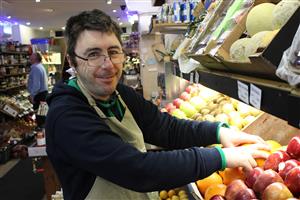
Support programme for young people leaving school
WALK PEER is a five-year model. In the first two years, young people while they are still at school are guided and trained on topics such as employability, entrepreneurship and transition. Transition is the main topic for years three and four. In the final year, the focus is entirely on a good start of their professional life.
WALK - Inclusive Employment Services, WALK Peer programme, Ireland -
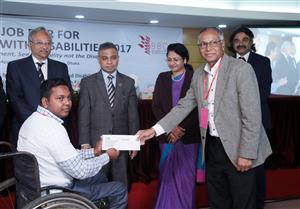
Job fairs organized by the Disability Network
Bangladesh Business & Disability Network was founded in 2017 by employers with the aim of creating a more disability inclusive workforce in Bangladesh. As of 2020 four job fairs for people with disabilities have been organized nationwide, resulting in more than 350 job placements with a retention rate of 80 per cent.
BBDN - Bangladesh Business & Disability Network, Establishment of a Business and Disability Network to Facilitate Employment, Bangladesh -
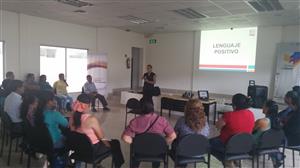
All-Sector-Cooperation creating jobs in thousands of companies
The Ecuadorian Labour Integration Service (SIL) promotes the inclusion of people with disabilities in the open labour market through training and assistance and by working together with the entire socio-labour spectrum. By 2016, some 12,900 people had found a job in 8,355 public and private companies.
FENEDIF - National Federation of Ecuadorian with Physical Disability, Labour Integration Service (SIL) of 2006 National Federation of Ecuadorians with Physical Disabilities (FENEDIF), in partnership with CONADIS, Petroamazonas EP and others, Ecuador, Ecuador -
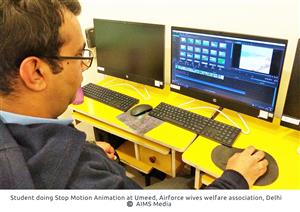
Inclusive job preparation and placement in the media & entertainment sector
AEMP offers pre-vocational and vocational training programmes in a range of technology, multimedia, and art-based themes, which focus on learning through play. In addition, the project provides mentoring and monitoring tools as well as various support and training to parents, educators, and professionals.
AIMS Media Pvt. Ltd., Ability Enhancement Programme, India -
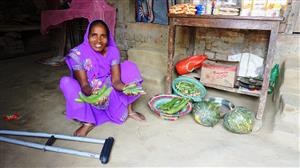
Inclusive organic agriculture farming for all, with approximately half being persons with disabilities
CBM cooperates with local partners across various states of India to train farmers, including people with disabilities, in organic farming and in supporting them by providing community loans for the procurement of equipment and livestock. By 2016 more than 11,000 farmers participated, 4,098 of whom were people with disabilities.
CBM - Christoffel Blind Mission India, India -

Making civil service positions accessible for people with intellectual disabilities
To enable people with intellectual disabilities to apply for public vacancies, Plena Inclusión, together with the Spanish Committee of Representatives of People with Disabilities, developed a special call for employment for the Ministry of Public Functions. From 2012 to 2020, 448 people were able to find a job.
Plena Inclusion Spain, Public Sector Employment, Spain -
Persons with intellectual disabilities working as university lecturers
The Institut für Inklusive Bildung qualifies people with intellectual disabilities and provides them with job opportunities, mostly teaching about the specific requirements of people with intellectual disabilities. As "education specialists" ("Bildungsfachkraft") they teach in high schools, speak at conferences, and conduct workshops.
Institute for Inclusive Education, Germany -
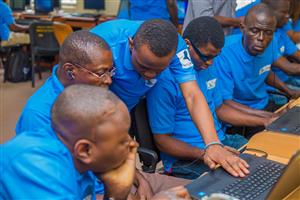
Providing vocational skills and career development to young adults with disabilities
The training focuses on IT entrepreneurship and career development to enable employment or self-employment. Graduates are supported in their search for an internship or a job or receive a small grant to start a company. Between 2017 and 2020, 1,300 people and 570 special needs teachers were trained.
Special Needs Initiative For Growth, TVET for Special Needs Young Adults in Low-Middle Income Countries, Nigeria -
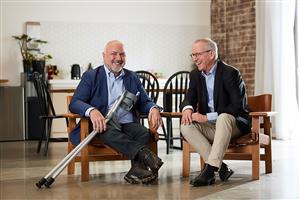
A mentoring programme for more people with disabilities on company boards
Australian Network on Disability's Directing Change Scholarship: A three-year program creating pathways for persons with disabilities in directorial roles. In 2022, received 226 applications, awarded 22 scholarships, and engaged over 300 directors.
Directing Change Scholarship, Australia -

The Sign Language Avatar Project
SiMAX is a semi-automatic system designed to translate text into sign language by combining technology from animation pictures, the gaming industry, and computer-aided translation services. As a fully automatic translation is not possible, the translation process is managed by a professional, deaf person.
signtime GmbH, Austria